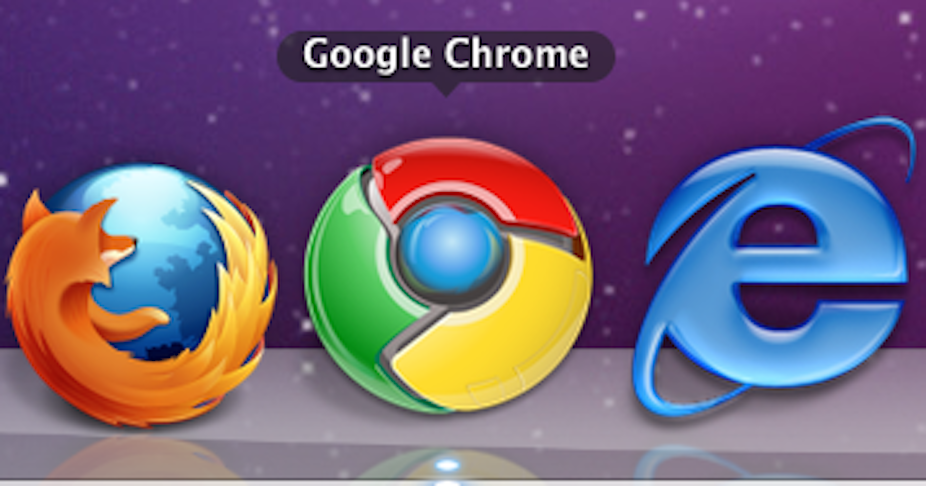Until a few years ago, there was only one name in the world of web browsing: Microsoft’s Internet Explorer. But now, in 2011, users have more choice than ever when it comes to searching online.
Before I go any further, let me declare a potential conflict of interest: I am an ex-Microsoft software developer. In fact, I bought a house in Seattle from Brad Silverberg, the senior vice president in charge of developing early versions of Internet Explorer.
Vestigial loyalties aside, I have to declare another conflict of interest: I am a Mac user and mainly use Google Chrome as my browser of choice. My centre also recommends Google Chrome to customers using our software.
There has always been one reason for choosing Chrome – it was simply the fastest internet browser around – but that advantage appears to have largely disappeared.
Today’s browser market is dominated by three main players: Google’s Chrome, Internet Explorer, and the open source Mozilla Firefox. A number of smaller players, such as Opera and Apple’s Safari, round out the field.
New versions of the three major browsers have been released in the last month – Chrome 10.5, IE 9 and Firefox 4 – but the release of Firefox was by far the most impressive.
In the 24-hour period following the launch, more than seven million users downloaded the open-source browser. A further eight million downloaded it the following day.
Where previous iterations of Firefox suffered due to poor speed and performance, the release of version four appears to have resolved those issues.
Indeed, with the recent releases of Firefox 4 and IE9, we are more or less at a point where there’s a level playing field between all of the main browsers.
Functionally, they all do what they are supposed to do – display web pages as the developers and designers intended. They can all handle new standards such as HTML 5 that allow the browser to display video and support native 2D graphics.
All three browsers support various security and privacy features that allow you to control what information a web site can use from your visit.

Worldwide, IE has always been the predominant browser in terms of market share, mainly because it came pre-installed on copies of Windows, the predominant PC platform.
But recent US and European anti-trust rulings have opened the browser market quite considerably. In Europe, IE has lost its dominance to Firefox and elsewhere IE is slowly losing users to Chrome.
In the past, IE was slower, less robust and lacked the features of Firefox and Chrome, both of which were innovating faster than IE.
In many ways, Microsoft faces the same challenge with IE as it does with its mobile operating system: it’s not the leader in terms of innovation in either case, it has finally released products that are the technical equivalents of their competitors, but in both areas it has come too late – the market has collectively looked at the Microsoft offerings and said: “Who cares?”.
Making matters worse, IE9 is limited by only being able to run on Windows Vista and Windows 7. Worldwide, Windows XP – a previous version of this operating system – is still used on 55% of all Windows machines.
The proportion of Windows XP in government and other large organisations is even higher, thanks in large part to the global financial crisis having slowed everyone’s appetite for large-scale hardware upgrades.
Without upgrading all of their machines at once, organisations are faced with the limited option of running IE7 or IE8, or to go for Chrome or Firefox.
A final consideration in the issue of browsers on the PC is that an increasing amount of web content is now being accessed from mobile devices such as smart phones and tablets.
In Australia, nearly 6% of all browsing is currently from iPhones, iPads and iPods. In Singapore it is nearly 10%, perhaps driven by the fact that phones, unlike other internet devices, are not filtered in Singapore.
It is predicted that by 2015 web access from mobile devices will exceed that from PCs. The mobile platform world is increasingly dominated by Apple and Google. IE, and to a lesser extent Firefox, are struggling to get a look-in.
And while the mobile browsing landscape continues to expand and develop, it’s clear that a bit of a lull has fallen over the PC-based browsing war.
The introduction of new browser versions is unlikely to change the browser loyalty of most people. People tend to use the browser that comes with their machine unless there is a compelling reason not to do so and increasingly that case is marginal.
Until something dramatic changes though, it will still be Google Chrome for me.

